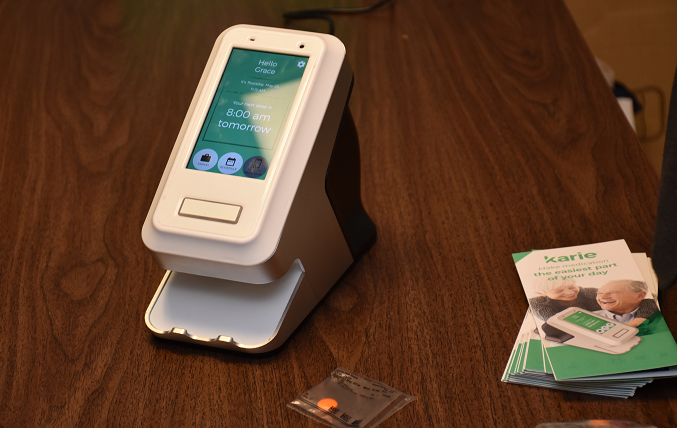Technology could play an important role in mental health support, according to a new study by London, Ont., researchers.

The team at Lawson Health Research Institute embarked on a pilot study in 2019 that used “smart home monitoring solutions” to assist those living with both a mental health disorder and other health challenges.
Dr. Cheryl Forchuk, assistant scientific director at Lawson, who also led the study, said the purpose of it was to see whether or not technology could improve the patient’s overall lifestyle and well-being.
“We began our research by using hospital prototype apartments,” she said. “So instead of just giving them smartphones, they were equipped with things such as a screen device, activity trackers, weigh scales and medication dispensers.”
The research team partnered with the Canadian Mental Health Association (CMHA) and the London and Middlesex Community Housing (LMCH) to retrofit the homes of the 13 study participants – all of whom, except for one, had three or more chronic illnesses, according to Forchuk.
All smart devices were connected to the Lawson Integrated Database to securely collect data from multiple sources and allowed care providers to send reminders to participants, while simultaneously tracking usage and results.

Get weekly health news
“Sometimes when people are having these multiple problems and illnesses, it was often the idea of memory as well as organization that was an issue for many,” Forchuk said.
She highlighted that at its core, the study found that these smart home monitoring solutions gave people more independence and the ability to properly manage their health care.
“Patients said that because they have very chronic illnesses, the illness itself was still there. But it didn’t affect their life as much that they were able to live a more normal life, despite these multiple illnesses, and remain in their home,” she said.
“It’s the difference between setting an alarm to wake up where you still feel you’re in control, versus having someone knock on the door and say it’s time to get up.”













Comments
Want to discuss? Please read our Commenting Policy first.